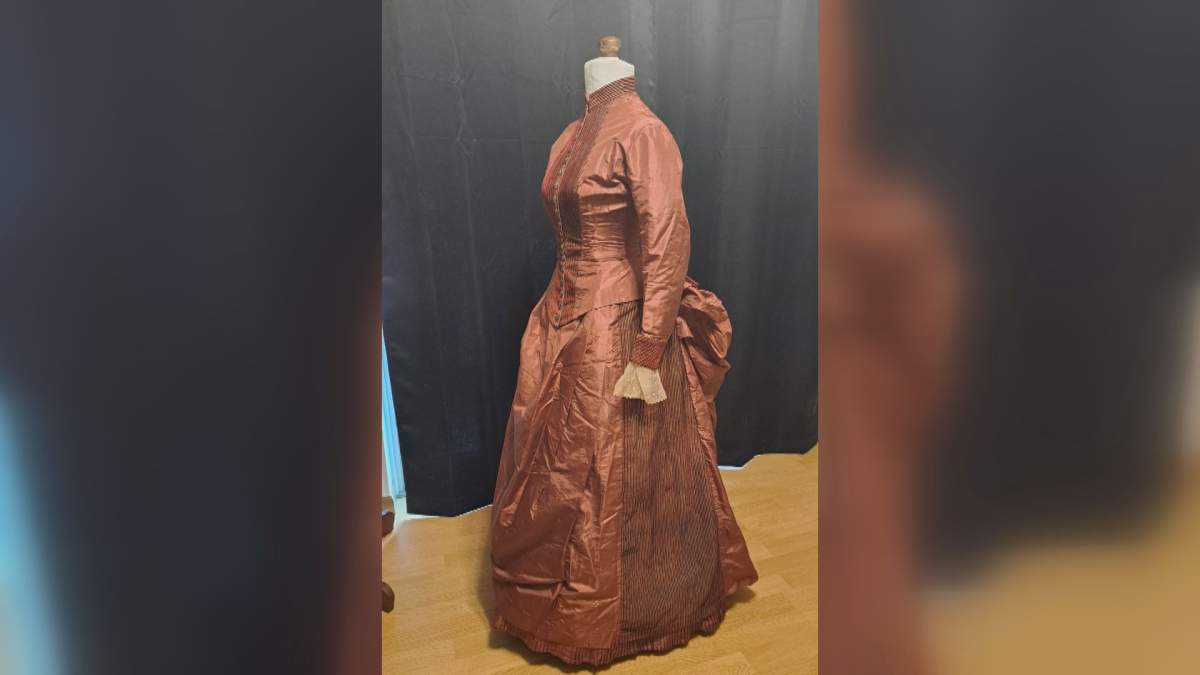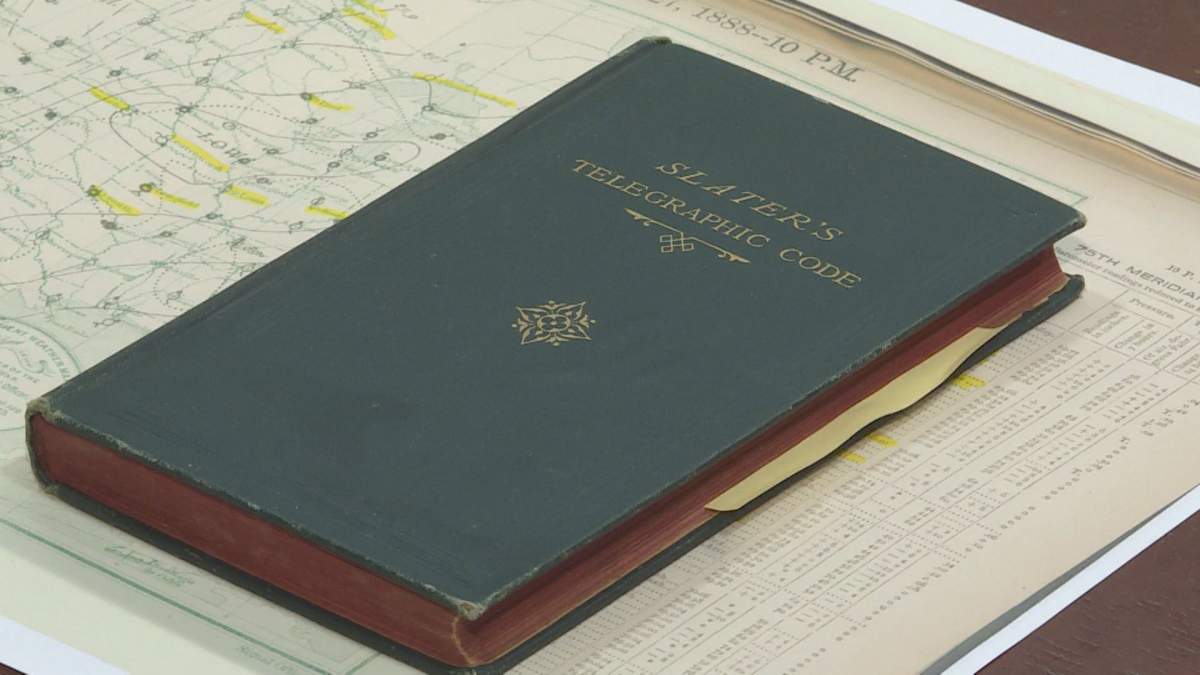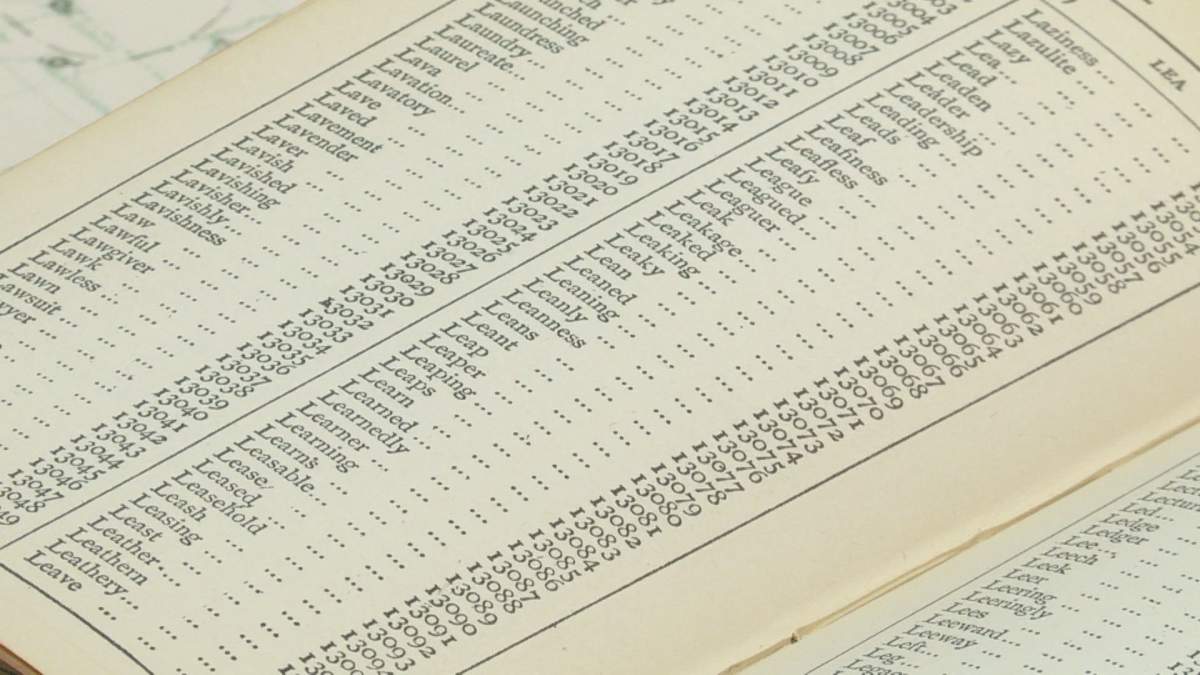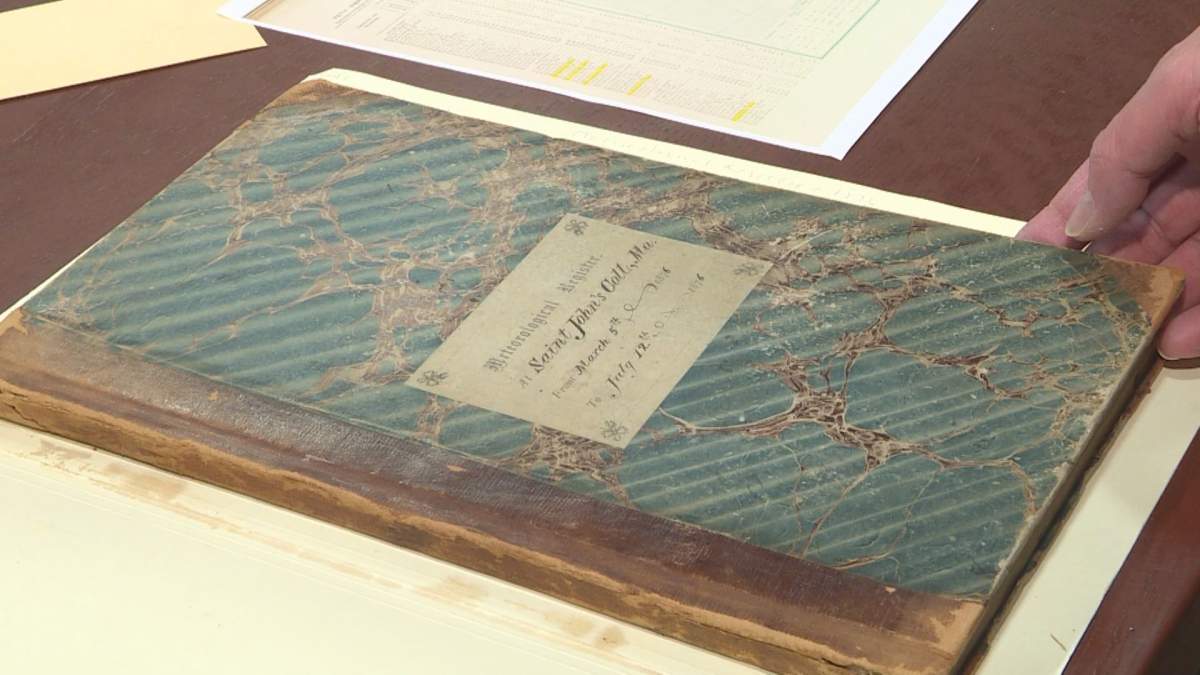When antique collector Sara Rivers Cofield made a unique discovery in one of her purchases, she didn’t know it would lead to an almost decade-long mystery.

Rivers Cofield, who lives in Chesapeake Beach, Md., purchased an antique bustle dress from an antique store in Searsport, Maine, about 10 years ago.
When she brought it home from the store, Rivers Cofield, who works as an archaeological curator, found a hidden pocket on the dress with something inside.
“I could feel that there was a clump in the pocket so I finally figured out how to access the pocket, and it turned out whatever was balled up in there was paper,” River Cofield told Global News.
“I started to try and un-ball it, I realize as I’m going that there’s actually two sheets. My mom, who was with me, we were doing this together, and we were like, ‘Oh man, it’s like secret writing from the 19th century!’”
Rivers Cofield says she and her mother were puzzled by what they found on the paper.
“We finally get them all unfolded and realized it just didn’t make any sense. You could kind of tell we were in this race, or ‘Who’s going to read it first and get to the secret message?’” she said.
“And mine was, the first one was like, ‘Bismarck omit buck bank’…. It made no sense whatsoever. There were actual words; you could read it, it just didn’t mean anything. We were just looking at each other like, ‘What is this? I have no idea.’”
Stumped by the writing on the paper, Rivers Cofield posted about it on her blog to see if anyone could potentially crack the code.
“It’s got this pocket that’s so hard to access, it’s almost like it was a secret, for, like, storing your secret code, which I normally wouldn’t mention, except there was a secret code in the pocket!” she said.
She said some people in the coding community reached out to her, believing it was an old telegraph code.

Get breaking National news
That’s when Wayne Chan, a research computer analyst at the University of Manitoba, comes into the picture. Chan came across the post about the unknown code in the dress in 2018.
“I was just looking at a cryptography website, and this (was) one of the codes they were discussing at the time.”
He said he was drawn to the unusualness of the scenario, having never seen a code found in a Victorian-era dress, and four years had passed with no solution.
When Chan first saw it, he got to work using Slater’s Telegraphic Code, “but basically, I got nowhere, and I gave up after a few months of working on it.”
But it continued to call his name, and four years later he found himself a little bored with some extra time off work.
“First I checked to see if anybody had cracked it, and in the past four years, it looked like it hadn’t been,” he said.
Chan said he felt like giving up again after going through 170 telegraphic code books trying to find a matching sequence.
He didn’t, though, and instead “decided to take a step back and kind of take a different tact looking at it.”
“I decided to immerse myself in the telegraphic era by reading more literature about the telegraph in general.”
A string of literature later, there it was: a book from 1880 talking about different uses for the telegraph, with a chapter on weather codes that looked similar to Rivers Cofield’s.
Chain said it was early January this year when he had his aha moment and felt he’d cracked it.
“The code turned out to be the weather code used by the U.S. Signal Corps, back when it was called the Signal Service.”
He added that it was the official signal service for the United States for about 20 years in the late 1800s.
He said one of the sheets found in the dress was actually from Winnipeg, from St. John’s College, which was a surprise.
“I was amazed because the address was found in Maine by a woman from Maryland. I didn’t expect to see any Canadian relationship.”
Rivers Cofield said she was delighted to see a message from Chan saying he had cracked the code, and even though it was a simple weather code, she saw the finding as revolutionary.
“People didn’t know what the weather was going to be until the telegraph was invented. For some reason, I just never really thought about that,” she said.
“I think the sort of revelations about daily life, and how revolutionary that was for daily life, was really meaningful to me. Way more meaningful than the idea that it was some secret spy code.”



















Comments
Want to discuss? Please read our Commenting Policy first.